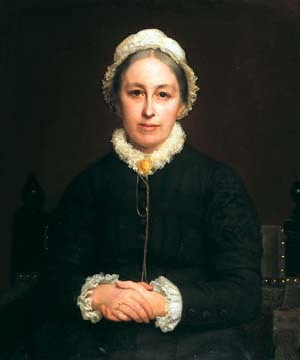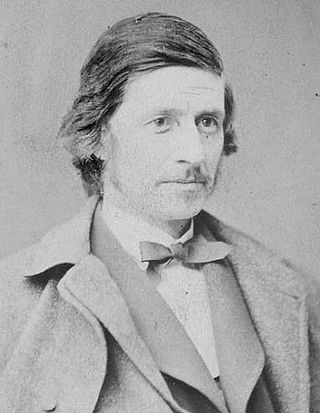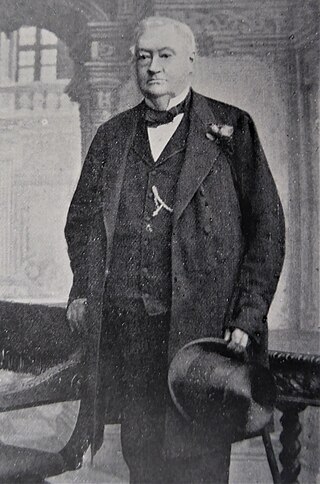Related Research Articles

Charles William Eliot was an American academic who was president of Harvard University from 1869 to 1909, the longest term of any Harvard president. A member of the prominent Eliot family of Boston, he transformed Harvard from a respected provincial college into America's preeminent research university. Theodore Roosevelt called him "the only man in the world I envy."

Charles Eliot Norton was an American author, social critic, and Harvard professor of art based in New England. He was a progressive social reformer and a liberal activist whom many of his contemporaries considered the most cultivated man in the United States. He was from the same notable Eliot family as the 20th-century poet T. S. Eliot, who made his career in the United Kingdom.

Daniel Coit Gilman was an American educator and academic. Gilman was instrumental in founding the Sheffield Scientific School at Yale College, and subsequently served as the second president of the University of California, Berkeley, as the first president of Johns Hopkins University, and as founding president of the Carnegie Institution. Eponymous halls at both Berkeley and Hopkins pay tribute to his service. He was also co-founder of the Russell Trust Association, which administers the business affairs of Yale's Skull and Bones society. Gilman served for twenty five years as president of Johns Hopkins; his inauguration in 1876 has been said to mark "the starting point of postgraduate education in the U.S."

Sarah Emily Davies was an English feminist who founded Girton College, Cambridge. She campaigned as a suffragist and for women's rights to university education. In her early life she attended meetings of the National Association for the Promotion of Social Science and befriended Barbara Bodichon and Elizabeth Garrett Anderson. After moving to London with her mother in 1862, she wrote for and edited the English Woman's Journal and joined the Langham Place Group. She co-founded the London Schoolmistresses' Association and the Kensington Society, which pressured for universal suffrage, although she herself believed only unmarried women and widows should gain the vote.

Alonzo Potter was an American bishop of the Episcopal Church in the United States who served as the third bishop of the Diocese of Pennsylvania. Potter "identified himself with all the best interests of society."

The Royal Society Te Apārangi is an independent, statutory not-for-profit body in New Zealand providing funding and policy advice in the fields of sciences and the humanities.

In 1865, at Boston, Massachusetts, a society for the study of social questions was organized and given the name American Social Science Association. The group grew to where its membership totaled about 1,000 persons. About 30 corresponding members were located in Europe. It published annually the Journal of Social Science and The International Journal of Social Sciences World (TIJOSSW).

Franklin Benjamin Sanborn was an American journalist, teacher, author, reformer, and abolitionist. Sanborn was a social scientist, and a memorialist of American transcendentalism who wrote early biographies of many of the movement's key figures. He founded the American Social Science Association, in 1865, "to treat wisely the great social problems of the day". He was a member of the so-called Secret Six, or "Committee of Six", which funded or helped obtain funding for John Brown's Raid on Harpers Ferry; in fact he introduced Brown to the others.

Thomas Bayley Potter DL, JP was an English merchant in Manchester and Liberal Party politician.

Otis C. Norcross served as the nineteenth Mayor of Boston, Massachusetts, from January 7, 1867 to January 6, 1868 during the Reconstruction era of the United States. Norcross was a candidate (1861) for the Massachusetts State House of Representatives; served as a member of the Boston Board of Aldermen from January 6, 1862 to January 2, 1865; chairman of the Boston Board of Aldermen from January 4, 1864 to January 2, 1865; and served as a trustee of the City Hospital, 1865 & 1866; and a member of the Massachusetts Governor's Council, under Gov. William Claflin (1869).
The Manchester Statistical Society is a learned society founded in 1833 in Manchester, England. It has a distinguished history, having played an important part in researching economic and social conditions using social surveys. It continues to be active as a forum for the discussion of social and economic issues and also in promoting research.

Thomas Lamb Eliot was an Oregon pioneer, minister of one of the first churches on the west coast of the U.S., president of the Portland Children's Home, president of the Oregon Humane Society, a director of the Art Association, director of the Library Association, and founder of Reed College.

The Kensington Society (1865–1868) was a British women's discussion society in Kensington, London, which became a group where rising suffragists met to discuss women's rights and organised the first campaigns for female suffrage, higher education and property holding.
The bibliography of Andrew Dickson White spans his career from 1852, during his junior year at Yale University, through his death in 1918. The primary topics of his works were related to social sciences such as history, government, economics, and international relations. Secondary topics included architecture and educational theory.
Caroline Wells Dall was an American feminist writer, transcendentalist, and reformer. She was affiliated with the National Women's Rights Convention, the New England Women's Club, and the American Social Science Association. Her associates included Elizabeth Peabody and Margaret Fuller, as well as members of the Transcendentalist movement in Boston.

Sampson R. Urbino (1818-1896) or S.R. Urbino was a German-born bookseller, publisher and library proprietor in 19th-century Boston, Massachusetts, specializing in foreign-language books.
The Massachusetts Board of Library Commissioners (est.1890) is a state agency that supports libraries in Massachusetts. The governor appoints each commissioner. The current board consists of librarians, academics and library trustees: Carol B. Caro, Mary Ann Cluggish, George T. Comeau, Mary Kronholm, Frank Murphy, Roland Ochsenbein, Janine Resnik, Gregory J. Shesko, and Alice M. Welch.

Shepard S. Woodcock (1824-1910) was an American architect practicing in Boston, Massachusetts during the second half of the nineteenth century.

Association for the Advancement of Women (A.A.W.) was an American women's organization founded in 1873.

Medical sociology is the sociological analysis of medical organizations and institutions; the production of knowledge and selection of methods, the actions and interactions of healthcare professionals, and the social or cultural effects of medical practice. The field commonly interacts with the sociology of knowledge, science and technology studies, and social epistemology. Medical sociologists are also interested in the qualitative experiences of patients, often working at the boundaries of public health, social work, demography and gerontology to explore phenomena at the intersection of the social and clinical sciences. Health disparities commonly relate to typical categories such as class and race. Objective sociological research findings quickly become a normative and political issue.
References
- 1 2 3 4 5 Constitution, address, and list of members of the American Association for the Promotion of Social Science, with the questions proposed for discussion: to which are added minutes of the transactions of the association. Boston: Wright & Potter. 1866. Retrieved 2010-09-04.
- ↑ New York Times, Nov. 20, 1867
- ↑ Albert Lepawsky. The Politics of Epistemology. Western Political Quarterly, Vol. 17, No. 3, Supplement (Sep., 1964); L. L. Bernard and J. S. Bernard. Origins of American Sociology: The Social Science Movement in the United States (New York: Crowell, 1943).